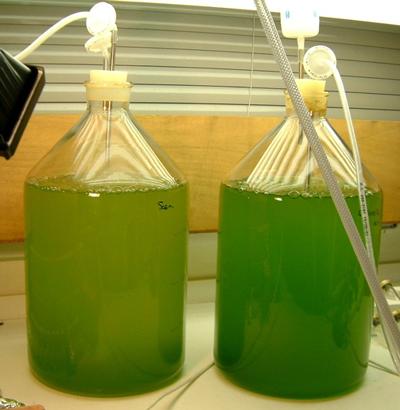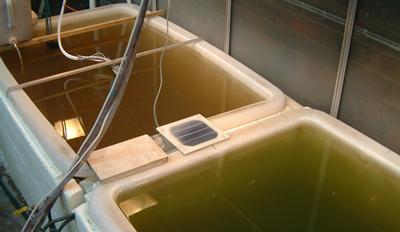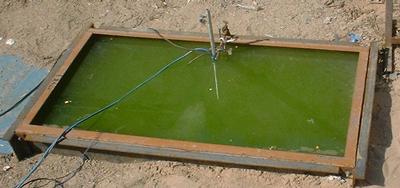Research project: Development of low-cost methods for treatment and reuse of drainage and urban wastewater by adaptation of waste stabilisation ponds for extreme continental climates
EU FP4 INCO-Copernicus project
EU FP4 INCO-Copernicus project
Work with pure algal cultures established growth-limiting conditions and kinetic coefficients for modelling. Observation of mixed algal cultures from experimental ponds showed species diversity and biomass density similar to conventional WSPs in summer, with algae surviving over winter to provide an inoculum for rapid regeneration in spring. It is clear that extreme climate WSPs can produce effluent of very good chemical quality at realistic loading rates. Strong evidence suggests, however, that in cold conditions wastewater can harbour a residual population of pathogenic microorganisms, especially viral particles. A model was developed to predict WSP behaviour during critical periods of temperature transition, as well as in steady state operation. In addition to research use, the model has the potential for application as a design tool in the near future. As a result of the work, there is now a more rational basis for the design, operation and regulation of extreme climate WSPs.
Results of this highly successful project are being disseminated through papers and publications. The model is available on the websites of AIPET and Southampton University. The microbiological findings will be of interest to the World Health Organisation and similar bodies responsible for national and international water quality standards. There has been considerable external interest from industrial and other enterprises, and technical papers have been sent out. The ‘know how’ associated with the project will be available via direct advice and consultancy to industry.


